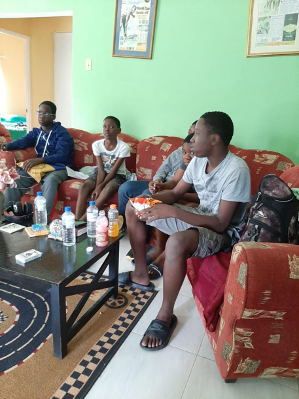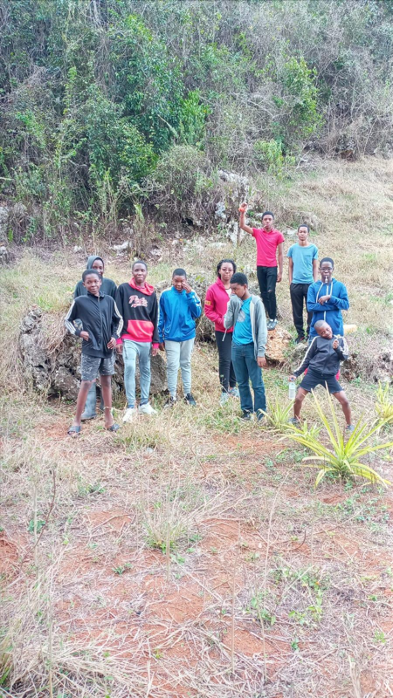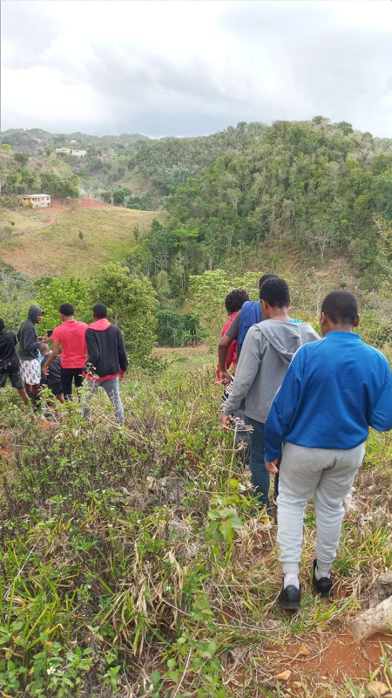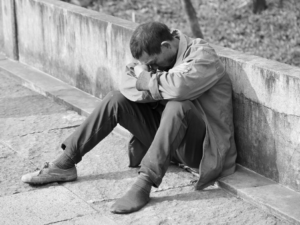Excelling academically and pursuing the things of God while living in one of Jamaica’s most feared inner-city communities demands a lot of courage, but 15-year-old Aamir McCoy’s determination to be an exemplary youth was re-ignited during the Easter break while participating in a camp that was organised by his church.
McCoy, a student at Wolmer’s Boys’ School, currently resides in Tivoli Gardens in West Kingston. He is accustomed to the sounds of gunshots and has witnessed the social issues plaguing his community, but thanks to the Christian upbringing provided by his parents and grandmother, he has kept his focus on school and church.
“Without God’s word, we can’t be nurtured, and we can’t grow up to be courageous,” said the youngster who got baptised recently.
There are growing concerns about the involvement of young men of McCoy’s age in gangs and illicit activities. Police Commissioner Major General Antony Anderson revealed in November last year that 875 major crimes committed in Jamaica from 2019 to 2022 were carried out by perpetrators between 15 and 17 years of age.

Guidance counsellor Marvin Moulton believes investing more in youth camps and mentorship programmes for boys can help. He has helped organise youth camps in St. Vincent and the Grenadines as well as in the US for the last 17 years and has witnessed the positive impact.
“The only emotion that is accepted from a male is aggression and anger. If he cries, he is too soft; if he speaks standard English, he is a homosexual; he can do no right,” he said.
“When he does grow up and get himself a young woman, she then finds out he is not emotional, he is not sensitive, he is not aware of her needs. But he had been engineered not to feel, so you are asking something from him that he was taught not to fully express. He is between a rock and a hard place,” he lamented.
Moulton, who is a member of the Kencot Christian Fellowship, was one of the main teachers during the youth camp that was organised by the church over the Easter holiday for boys. Since it was the first such endeavour, the decision was taken to have the camp for just three days at McKenzie Hope, a seven-acre farm in Calderwood, St. Ann.
“They came alive. There was a different side to them. There was more camaraderie, brotherhood and they were docile, calm, and open. It is not that our boys don’t want these things, but it is that we don’t afford them the opportunity to, so a camp like this worked wonders,” said Mouton, who described his love for mentoring as a calling that God placed on his life.

Unfortunately, Moulton has found that, unlike in the US, corporate companies and even government entities are not as willing to finance mentorship programmes and camps for boys. In fact, he feels that generally, there is more focus on funding activities that benefit women and girls.
“If you want to do anything geared towards women, you would get funding from here to Nazareth. If you put anything out there that requires funding for men or boys, you get no support,” he lamented, while noting that the lack of support for men is the basis for some of the social problems now plaguing our country.
Dawnette Lumsden, a Sunday School teacher at Kencot Christian Fellowhip said she was lying in bed one morning when she got the vision to host a summer camp for just boys. Later that day, a senior member of her church relayed the same idea to her. This was confirmation. They then brought the idea to the attention of the Sunday School superintendent, and the planning started then.
“Our boys, especially here in Jamaica, are shown less attention than the girls,” she said.
“What I see around me is that too many young boys, they are losing hope, so they are on the corners and the first thing is to build a spliff,” she shared, while adding that many of them are attracted to a life of scamming.
During the camp, the boys were mentored and engaged in other meaningful activities like farming and hiking. The group of nine protested when it was time to leave the expansive farm to go back to the hustle and bustle of urban living.
“These young persons, they don’t go outside much; they are always in the house, on their phones or on the tablet,” Lumsden noted.
Desrian Blackwood is happy she made the decision to send her 13-year-old son Adlai.
“We were happy to send them off outside in fresh air and detached from their devices because school keeps them attached to their devices because everything is online now. It was a good break, and we welcomed that,” she said.

“Also, for them to be in a group of their peers and hearing from people outside of their parents on these topics, even though we reinforce them in the home, it is always good when they hear it from others,” she added.
Adlai said he particularly remembers the discussion about self-esteem. Given the increasing desire for some boys, even in his age group, to engage in gang activity due to peer pressure, he believes there is definitely a need for the teaching of self-esteem. He was very excited about how he spent his Easter break.
“It was actually fun; the place was incredible. There was a lot of space; we did a hike, and it was really nice. There were games to play; we had group activities, and we had classes,” he recounted.





